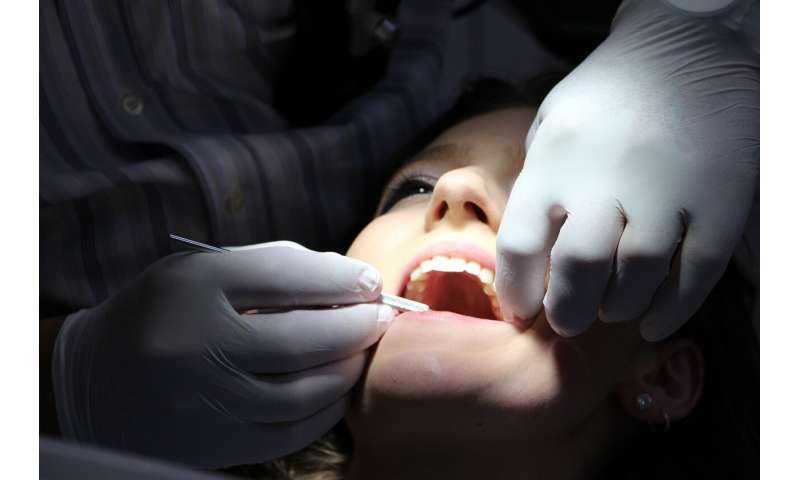#Advanced nanotechnology to improve success of dental implants
“#Advanced nanotechnology to improve success of dental implants”

A technological advancement that may prove crucial in the long-term success of dental implants has been developed by University of Queensland researchers.
Dr. Karan Gulati, NHMRC Early Career Fellow from the UQ School of Dentistry, said modifying dental implants with ‘nanopores’ will help protect against one of the leading causes of implant failure.
“Poor integration between the implant and the surrounding tissue is one of the leading causes of dental implant failure,” Dr. Gulati said. “If the sealing between the implant and the surrounding gum tissue fails it can result in bacteria entering the implant and causing infection.”
He said, “Our simple solution is the fabrication of nanopores — which are tiny nano-scale holes of just 40 to 80 nanometres in diameter — to cover the entire surface of the implant. We’ve found that soft-tissue cells attach well onto the nanopores, resulting in better soft-tissue seal formation.” He explained that his team can control the cell functions to achieve a more enhanced soft-tissue integration.
Dr. Gulati said that dental implant failure represents an economic and health burden in Australia.
“The failure rate of dental implants is generally five to 10 percent, and for smokers it can be up to 20 percent,” he said. “Failure is more common in older patients, smokers, people with poor oral hygiene, and those with ongoing health conditions, such as diabetes and osteoporosis.”
From a financial point of view, implant failure can result in a patient paying thousands of dollars more on top of the cost of the original dental implant.
“This advancement of nanotechnology is a crucial step in improved oral health for the community.”
Dr. Gulati is hopeful that human trials will begin next year.
“We have optimized the protocols and the therapies, now we are ready to turn the research into reality,” he said.
“We are currently seeking funding to enable us to purchase additional equipment and recruit staff so that clinical translation can commence.”
The proof of concept study is published in Materials Science and Engineering: C.
More information:
Karan Gulati et al. Anodized anisotropic titanium surfaces for enhanced guidance of gingival fibroblasts, Materials Science and Engineering: C (2020). DOI: 10.1016/j.msec.2020.110860
Advanced nanotechnology to improve success of dental implants (2020, June 11)
retrieved 11 June 2020
from https://phys.org/news/2020-06-advanced-nanotechnology-success-dental-implants.html
This document is subject to copyright. Apart from any fair dealing for the purpose of private study or research, no
part may be reproduced without the written permission. The content is provided for information purposes only.
If you want to read more Like this articles, you can visit our Science category.
if you want to watch Movies or Tv Shows go to Dizi.BuradaBiliyorum.Com for forums sites go to Forum.BuradaBiliyorum.Com



